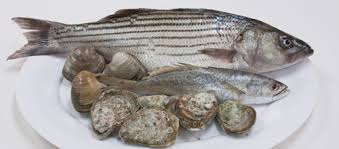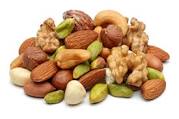Thanks LivingStrong.com: I often have cold hands and feet and notice it more when I miss taking my doTERRA vitamins. Here are a few reasons why I believe I need to be consistent taking my vitamins!!
by NICKI WOLF
‘The saying goes “cold hands, warm heart,” but having colds hands and feet may indicate nutritional deficiencies. Having cold-to-the-touch extremities is not dangerous by itself, but inadequate vitamin and mineral intake may lead to other, more dangerous health problems. While you can tweak your diet to boost nutritional intake, consult your health care provider to ensure it is not a symptom of some other condition.
Iron

Cold hands and feet may result from iron deficiency. The average adult requires 8 to 18 mg iron each day. Pregnant women require much more — 27 mg. Consuming less than this inhibits the production of myoglobin and hemoglobin, blood components that deliver oxygen to various parts of the body. This triggers a condition known as anemia; one symptom of anemia is cold hands and feet. Eat liver, oysters and spinach to boost iron intake.
Vitamin B-12
Not getting enough vitamin B-12, also known as cobalamin, may contribute to a feeling of coldness in hands and feet. You need 2.4 mcg of this vitamin each day, although women need a bit more when pregnant — 2.6 mcg. A deficiency causes anemia, a symptom of which is cold hands and feet. Add fish and shellfish, organ meats, eggs and dairy products to increase your intake of vitamin B-12.
Niacin
Raynaud’s disease is a circulatory condition that can result in cold hands and feet due to a narrowing of arteries that supply blood to these body parts. Andrew Weil, M.D., director of the Arizona Center for Integrative Medicine, suggests consuming 100 mg of niacin per day to combat this problem. This is quite a bit more than the quantity you normally need each day for good health, which ranges from 14 to 18 mg. You can boost your consumption of niacin by eating beets, fish and sunflower seeds.
Magnesium
Including adequate amounts of magnesium in your diet treats cold hands and feet — low extremity temperature may be related to a deficiency of this mineral. Adult women need up to 300 mg of magnesium daily, and men require up to 400 mg. You can get more magnesium in your meal plan by consuming tofu, whole grains, many types of nuts, baked potatoes, seaweed and green leafy vegetables.’ 

doTERRA’s Lifelong Vitality Pack contains a food nutrient complex capsule, a land&sea source omega softgel and a cellular complex of plant sources minerals/essential oils. There’s a 30day money back guarantee offered if desired results have not been met– for everyone I know who’ve sent the vitamins back, they’ve realized after about a week results had truly been achieved and reordered! Hawaiian Coconut Energy is a great source of electrolytes like B6/b12, magnesium, calcium and vitamin C. The body needs calcium to absorb Vitamin D & today’s statistics show a grand majority of our population are vitamin D deficient!

Now that winter is upon us and I’m more susceptible to cold in the extremities, I’ll be more diligent to take my vitamins daily— with food, of course!! Contact Angie to discuss the benefits of doTERRA’s Gifts of the Earth- 919 656-0963 Be well & Make Life a Healthier Journey~

Thanks for the helpful information!
youre very welcome!! Christine, I’m learning how to find things in my website back-office.. just saw your msg… sorry it’s a year later..
I hope you’ve been well through all the challenges of the day!!
Angie
919 656-0963